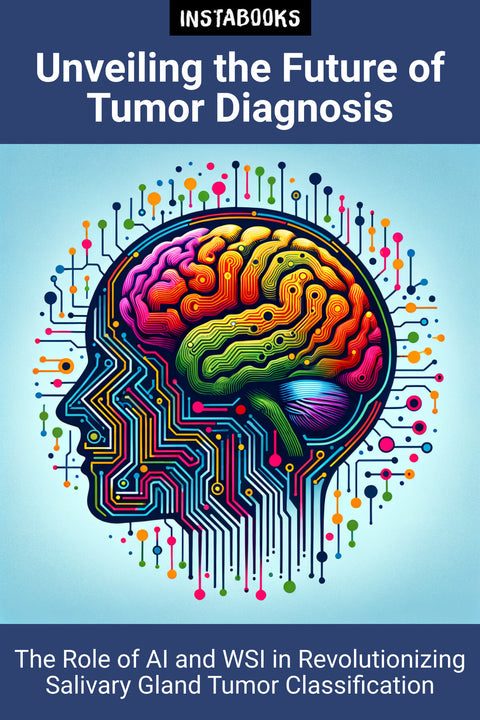
Unveiling the Future of Tumor Diagnosis
The Role of AI and WSI in Revolutionizing Salivary Gland Tumor Classification
Included:
✓ 200+ Page AI-Generated Book
✓ ePub eBook File — read on Kindle & Apple Books
✓ PDF Print File (Easy Printing)
✓ Word DOCX File (Easy Editing)
✓ Hi-Res Print-Ready Book Cover (No Logo Watermark)
✓ Full Commercial Use Rights — keep 100% of royalties
✓ Publish under your own Author Name
✓ Sell on Amazon KDP, IngramSpark, Lulu, Blurb & Gumroad to millions of readers worldwide
Introduction to Whole Slide Image Classification
Whole Slide Image (WSI) classification has transformed the diagnostic landscape for salivary gland tumors. This innovative approach is redefining how medical professionals understand and analyze these complex conditions. The book delves into the intricacies of salivary gland tumors, exploring the dichotomy between benign and malignant forms, and emphasizing the critical need for accurate diagnosis to guide effective treatment plans.
Computational Methods and AI Techniques
At the heart of this transformation are cutting-edge computational methods and Artificial Intelligence (AI) techniques. The book provides a thorough examination of machine learning algorithms, particularly how Multiple Instance Learning and Deep Learning, including Adaptive Feature Fusion MobileNet (AFFMNet), are revolutionizing cancer classification. Readers will gain insights into how Convolutional Neural Networks (CNNs) play a pivotal role in identifying specific tumor types, such as Warthin tumors and pleomorphic adenomas, with unprecedented accuracy.
Exploring Adaptive Feature Fusion MobileNet (AFFMNet)
The centerpiece of modern AI application in tumor classification is the AFFMNet, a network designed to enhance diagnostic precision. The book explains how AFFMNet utilizes adaptive feature fusion and attention mechanisms to maintain accuracy and focus on lesion-prone areas, demonstrating minimal inference time while outperforming other models.
Clinical Applications and Future Directions
This book offers a comprehensive overview of the clinical utility of AI in diagnostics, highlighting the immense potential of tools like AFFMNet. It explores the integration of AI with existing diagnostic modalities, advocating for advancements in personalized medicine through large-scale studies and the development of tailored diagnostic models.
Conclusion: Shaping the Future of Diagnosis
The journey through this book provides a detailed understanding of the ongoing advancements in WSI classification of salivary gland tumors. By focusing on the latest computational and AI techniques, along with contemplating future research opportunities, it underscores the transformative promise these technologies hold in achieving breakthrough accuracy and efficiency in tumor diagnosis.
Table of Contents
1. Understanding Salivary Gland Tumors- Types and Characteristics
- Current Diagnostic Challenges
- Impact on Patient Outcomes
2. The Basics of Whole Slide Imaging
- What is WSI?
- Advantages Over Traditional Methods
- Implementing WSI in Diagnostics
3. Diving into Machine Learning
- Understanding Algorithms
- Applications in WSI
- Challenges and Solutions
4. Deep Learning in Tumor Classification
- Exploring CNNs
- Application Scenarios
- Case Studies and Results
5. The Power of Adaptive Feature Fusion MobileNet
- Mechanisms of AFFMNet
- Performance Metrics
- Comparative Analysis
6. Integrating AI into Clinical Practice
- From Research to Application
- Addressing Integration Challenges
- Enhancing Clinical Decision-Making
7. Clinical Case Studies and Research
- Successful Implementations
- Lessons Learned
- Future Research Directions
8. Future Directions in AI Diagnostics
- Emerging Technologies
- Next-Gen Applications
- Ethical and Practical Considerations
9. Towards Personalized Medicine
- Tailored Diagnostic Models
- Personalization in Treatment
- Challenges in Implementation
10. Evaluating Cost and Accessibility
- Economic Considerations
- Improving Accessibility
- Global Implications
11. Ethics and Regulation in AI Diagnostics
- Understanding Ethical Concerns
- Navigating Regulations
- Establishing Standards
12. Conclusion and Roadmap to the Future
- Key Learnings
- A Vision for the Future
- Continued Exploration and Innovation
Target Audience
This book is written for medical professionals, researchers, and students interested in the application of AI and machine learning in medical diagnostics, particularly in the field of salivary gland tumor classification.
Key Takeaways
- Comprehensive understanding of WSI classification for salivary gland tumors.
- In-depth analysis of AI and machine learning techniques used in medical diagnostics.
- Insights into the capabilities and performance of Adaptive Feature Fusion MobileNet.
- Exploration of clinical applications and emerging trends in AI-driven diagnostics.
- Discussion on future directions, ethical considerations, and the potential for personalized medicine.
